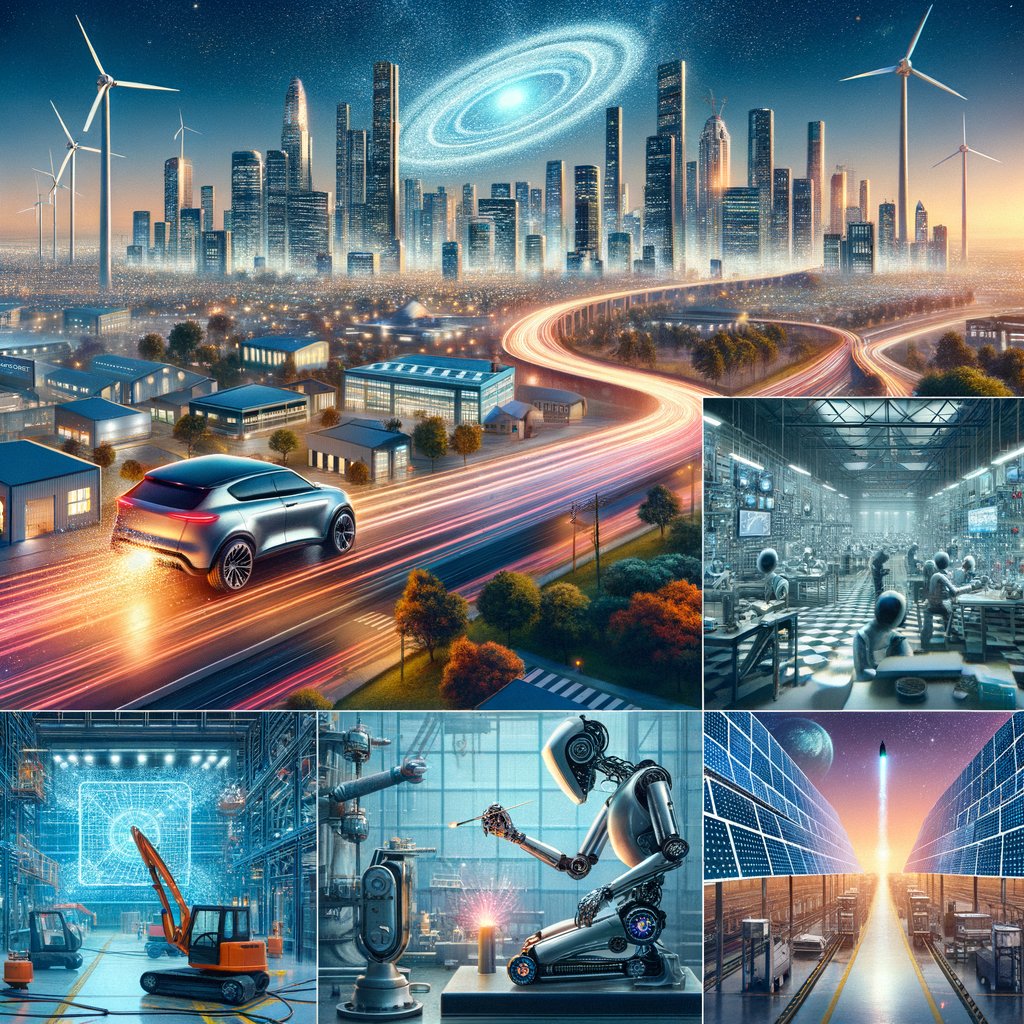Image created by AI
AI Powers A New Industrial Age in China
In the bustling suburbs of Beijing, the future of automotive manufacturing pulses at the core of Xiaomi's fully automated assembly line. Every 76 seconds, the plant births a brand-new car, encapsulating the might of artificial intelligence (AI) in revolutionizing traditional industries across China.
China's strategic embrace of AI is setting the stage for a seismic shift in both conventional and cutting-edge sectors. The country is currently heralding a crucial phase expected to last the next three to five years, where AI-driven advancements will redefine industrial processes.
In the traditional industrial stronghold of Harbin Electric Machinery Co. in Heilongjiang Province, welding robots boost production efficiency by 40% using advanced systems that ensure precision and reduce hazardous exposures. This integration of AI not only scales production capabilities but also significantly enhances worker safety and production quality.
The momentum of AI integration is not confined to traditional sectors alone. In Taizhou, Zhejiang Province, an advanced satellite production facility slashes the time and cost needed to produce space technology, demonstrating AI’s potential to revolutionize even the most advanced manufacturing domains. This facility has dramatically reduced the satellite production cycle from up to two years to just 28 days while cutting costs by 45%.
Reflecting on the broader scale of AI adoption, the China Internet Development Report 2024 reveals an impressive leap in the number of smart factories and digital workshops. Nearly 10,000 of these futuristic facilities are now operational, establishing a new standard for the manufacturing sector nationwide.
Moreover, beyond production enhancements, AI is redefining operational management across industries. It bolsters efficiency in supply chain management, sales forecasting, and even market strategies. Experts predict a surge in comprehensive automation and the possibility of fully unmanned production systems as AI technologies and data analytics continue to evolve.
Peking University’s professor Huang Tiejun and Pan Jiaofeng of the Chinese Academy of Sciences envisage AI as a fundamental infrastructure of tomorrow's industries, paralleling its impact to that of the steam engine and the electric motor in previous industrial revolutions.
As China continues to unfold its AI blueprint, the implications for global economic dynamics and technological leadership are profound. The ongoing transformation not only underscores China's ambition to lead international technological advancements but also sets a benchmark for global industrial innovation.










